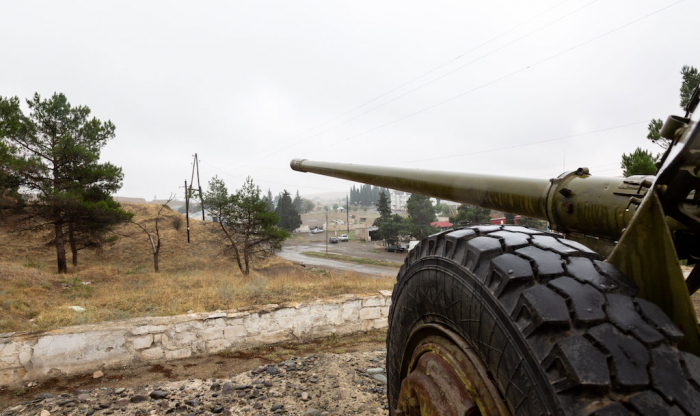The Azerbaijan-Armenia border became a centre of global attention once again, as violence erupted there in mid-July. This time around, violent clashes occurred in the strategically important region of Tovuz, located north of the border, instead of Nagorno-Karabakh, an Armenian-occupied Azerbaijani territory to the south.
Some of Azerbaijan’s energy routes cross Tovuz, where military outposts along the border and residential areas came under attack from neighbouring Armenia. The brief assault resulted in 12 Azerbaijani losses, including 11 soldiers and one civilian. Armenian casualties are unknown since that country did not disclose relevant information.
The Armenian occupation of Nagorno-Karabakh remains at the heart of the crisis between the two countries. A useful rule of thumb is to look for the origins of any military confrontation in history – specifically, arbitrary interventions by imperial powers. The Nagorno-Karabakh dispute is no exception as it is a product of the Russian Empire’s resettlement policy. As a result of that approach, the share of Armenians in the region’s population increased from 22% in 1823 to 80% a century later. Azerbaijani Turks, in turn, were exiled from their land and left without a home. In the wake of the Soviet Union’s disintegration, chaos and an ethnic cleansing campaign by the Armenians resulted in the further displacement of 1 million Azerbaijani Turks from Nagorno-Karabakh.
Azerbaijan responded strongly to Armenia’s policy of escalation along the border. After a very long time, the people of Azerbaijan took to the streets, urging their government to respond to the Armenian assault. President Ilham Aliyev proceeded to sack his foreign minister, Elmar Mammadyarov, over the latter’s unavailability during that major crisis.
Azerbaijan’s response to the Armenian attack did not stop there. Turkey, too, became involved in the dispute, issuing a number of strongly-worded statements against Yerevan’s latest act of aggression. President Recep Tayyip Erdoğan, speaking the day after the offensive, publicly condemned “the attack by Armenia against Azerbaijan, our friend and sibling,” and stressed the importance of the location: “The attack took place at the border between those two countries. It indicates that there was a deliberate attack against Azerbaijan. Without a doubt, Armenia is out of its depth here.” Defense Minister Hulusi Akar, too, pledged Turkish support to Baku’s armed forces. Ankara proceeded to dispatch a military unit to Azerbaijan and conducted a joint military exercise with them near their Armenian border.
Turkey takes the repercussions of the latest escalation seriously. Ankara questions why Armenia, already dealing with immense economic problems and crumbling under the COVID-19 pandemic’s fallout, would attack its neighbour and target the strategically important region of Tovuz. Analysts maintain that Yerevan intended to block attempts to resolve the frozen conflict in Nagorno-Karabakh and distract attention from those occupied territories. Yet that country cannot handle the resulting economic and political turmoil. Others, therefore, note that Armenia’s political leadership would like to stir up nationalist sentiments in an attempt to consolidate their domestic base. They underline that any attempt to start new fights would put Yerevan in an even more difficult situation.
Hence the conclusion that Armenia did not decide to attack Azerbaijan itself. That is why Erdoğan’s claim that the offensive was out of Armenia’s depth was noteworthy. So, why did tensions escalate along the Azerbaijan-Armenia border? The attack must be viewed as part of a broader context. One thing is clear: The current situation did not arise independently from Russia’s regional influence or the most recent developments in Libya and the Eastern Mediterranean.
Yahya Bostan is a journalist writing for the Daily Sabah.
Read the original article on the Daily Sabah.
More about: Armenia
















































